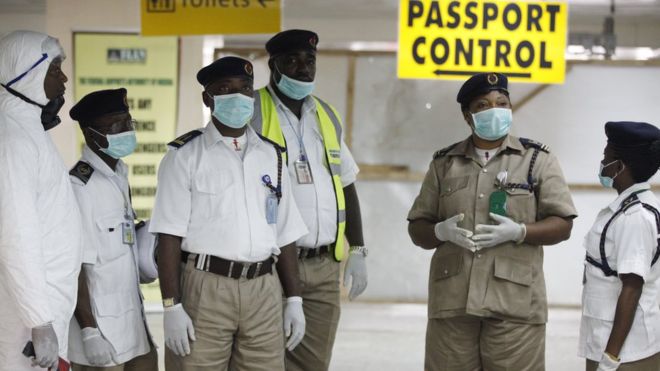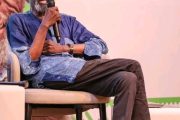Fearful of the public being overwhelmed by panic, the government says the Nigerian Centre for Disease Control is not only on ground but fully equipped to battle Ebola in tandem with the slogan of ‘Never Again’ to the ravage of killer epidemics such as Ebola, Lassa fever, etc. A statement sent out for the minister by Boade Akinola stressed how the agency has, for sometimes now, been deliberately strengthened in terms of capacity for detection, managing and responding to global health risks.

Prof Isaac Adewole, Nigeria’s Minister for Health
Following the World Health Organisation, (WHO)’s confirmation of cases of infection in the Democratic Republic of Congo, (DRC), Nigeria says it has put Port Health officials on the watch out by setting up inspection activities, documenting and acting on suspected cases so that relevant tests could be conducted in such cases. Professor Isaac Adewole, the Minister for Health is calling for intensified awareness efforts on the symptoms of hemorrhagic fevers, an obvious reference to one of the early signs of infection. Other symptoms to look out for are listed as follows: fever, fatigue, weakness, dizziness and muscle aches. Bleeding under the skin, internal organs and from bodily orifices such as the mouth and ears is also listed.
The Nigerian government identified the challenge in terms of heightened vigilance by which is meant that health care providers and members of the general public report any sign of illness immediately to public health officials as well as strict observance of personal hygiene. A directive has already gone out to health workers to maintain what the statement called ‘high index of suspicion’ by screening all fevers.
The challenge is for states to commence mass conscientisation of the populace to strengthen awareness and for state ministries of health to rev up their supervision service delivery, the statement said.
 Coming almost immediately after the celebro-spinal meningitis crisis in which no less than a thousand people perished, the success rate of what appears to be a summoning to the gospel of early warning/early action by the Minister of Health would interest many observers of how Nigeria fares in terms of managing global risks. Health is only one of them. Climate change, terrorism, energy, migration and illicit financial transactions are all components of the package. That’s why they call this age that of the ‘post-secure’ world. The unthinkable is now the norm about which national governments can do very little in most cases. The claim is that they can still cope if they subscribe to the early information/early action paradigm. But are Nigerian holistically conscientised to ride new global risks out, including the patriotism, collective sense of self and the infrastructural underlay for overcoming shocks? In that context, this comprehensive alert can be a good start!
Coming almost immediately after the celebro-spinal meningitis crisis in which no less than a thousand people perished, the success rate of what appears to be a summoning to the gospel of early warning/early action by the Minister of Health would interest many observers of how Nigeria fares in terms of managing global risks. Health is only one of them. Climate change, terrorism, energy, migration and illicit financial transactions are all components of the package. That’s why they call this age that of the ‘post-secure’ world. The unthinkable is now the norm about which national governments can do very little in most cases. The claim is that they can still cope if they subscribe to the early information/early action paradigm. But are Nigerian holistically conscientised to ride new global risks out, including the patriotism, collective sense of self and the infrastructural underlay for overcoming shocks? In that context, this comprehensive alert can be a good start!




























